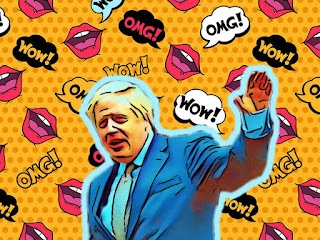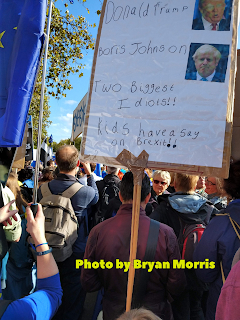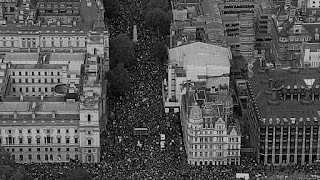As for Christmas itself, I think we should return to the Bible to see what it has to teach us about the present time. There is, of course, the wonderful Christmas story which tells of the birth of Our Lord, but, in the Old Testament, I think we can see the first Brexit - if under another name. I refer, of course to the Exodus of the Israelites from Egypt to the Promised Land. I thrill with excitement when I read the Book of Exodus; the Children of Israel must have felt, during their Exodus, that marvellous sense of deliverance as we in the Brexit Party are feeling now. Another wonderful parallel between the Exodus Story and the present time is that both escapes from slavery were led by a divinely inspired prophet. The Israelites were led by Moses; we have been inspired in our exodus by my esteemed colleague, Nigel Farage - a true leader of his people and - dare I say it? - a charismatic prophet like Moses.
Nigel is now being dismissed as a newly-irrelevant politician , but I believe him to be worthy of the highest honour. I hope to see him knighted at some time in the future. As to what happens to us Brexit Party MEPs and members now, I think we have a new role in returning to our old political parties and powering them on to our bright new future. But, this is still to be decided. I never liked travelling to the EU Parliament anyway - the rain in Europe isn't as nice as our bracing British rain. As far as I'm concerned, if Bonny Boris makes me an offer, I might well be returning to the Conservative fold.
Returning to the Bible and the Christmas Story, I would never be remotely prepared to suggest that Our Lord would have voted for Brexit. That would be brash, boorish and blasphemous. However, I do believe we can see a lesson for EU nationals living in Britain in the story of the Three Kings. who journeyed to Bethlehem to visit the infant Jesus. Read this extract from St Matthew's Gospel, Chapter 2, verses 10 - 12:
"When they saw the star, they were overjoyed. 11On coming to the house, they saw the child with his mother Mary, and they bowed down and worshiped Him. Then they opened their treasures and presented Him with gifts of gold and of incense and of myrrh. 12And having been warned in a dream not to go back to Herod, they returned to their country by another route."
The last verse, I believe, is of great significance. The kings came to another country, fulfilled their purpose and then returned to their country. I hope all EU nationals living in the UK will learn from this example.
Christmas is a time for reconciliation and forgiveness, and I would like to say to all Remainers who read this: I forgive you! Even though you are all traitors and bolshies, we of the victorious Leave camp want to be reconciled to you, and stretch out our arms to you at Christmas. That goes for me, Bonny Boris, Nigel Farage and all who battled against your treachery.
In conclusion, I wish all Rhymes and Routes readers a very Merry Christmas and a Happy New Year - even the traitorous Blogmeister and Rednev. By way of beginning the healing of divisions, I shall pray for you deluded renegades to come to your senses - if you have any.
Season's Greetings!
Season's Greetings!
Ann Widdecombe.
The Blogmeister comments:
I hate to sound like Ebenezer Scrooge, but the words "Christmas" and "Humbug" spring to mind here. Quite what Christians will make of Ms Widdecombe's interpretation of the Bible is beyond imagining. All I wll say is that if you, Ann, are floating on clouds of Ecstasy, then you have been taking the wrong tablets. The thought of you, Nigel Farage and Boris stretching out your arms to me makes me feel physically ill, and I'm sure many Remainers feel the same. Bah!




































